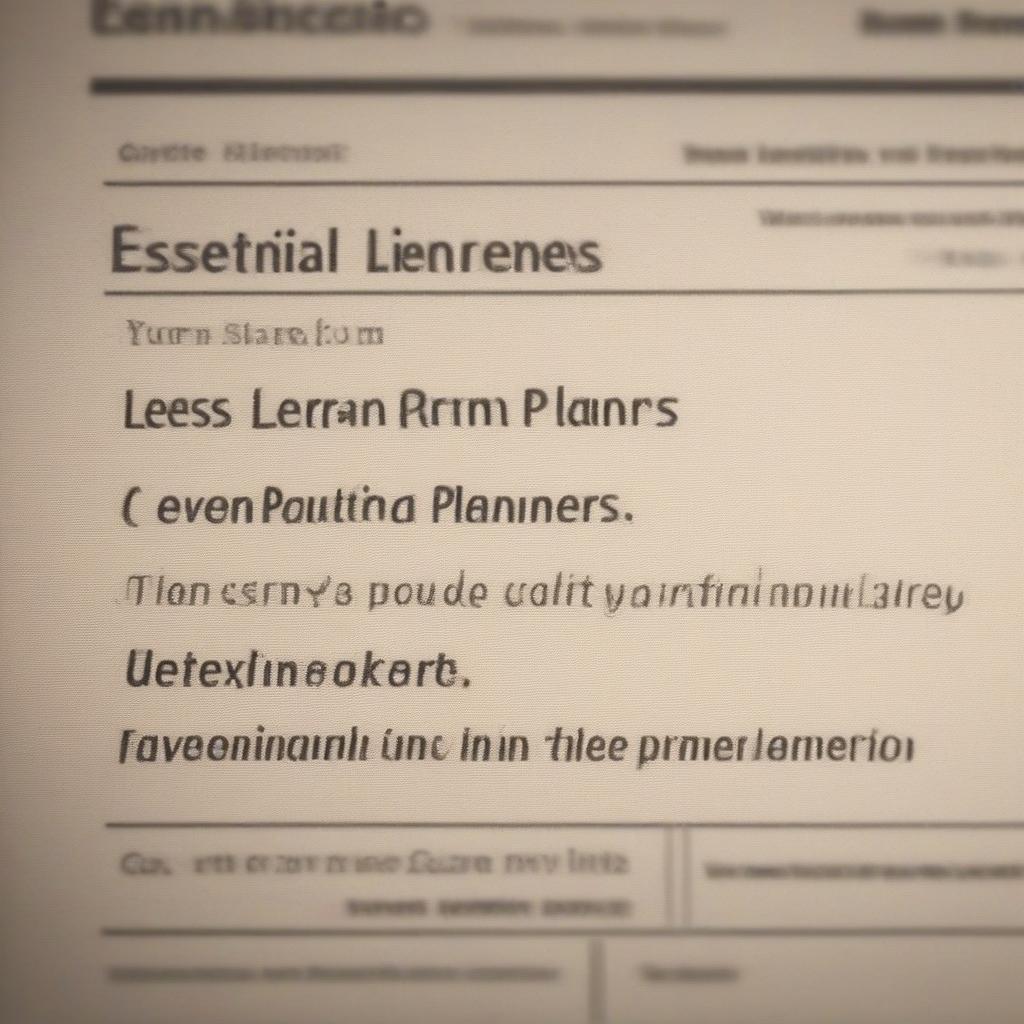
Every successful event planning business, whether it’s crafting unforgettable weddings or executing seamless corporate conferences, starts with one crucial element: a powerful value proposition. In the fiercely competitive world of event planning, simply being good isn’t enough. You need to articulate why clients should choose you over the dozens of other options vying for their attention. This article provides a comprehensive guide to crafting a unique value proposition (UVP) that sets your event planning business apart, attracts your ideal clients, and drives sustainable growth.
What is a Value Proposition?
At its core, a value proposition is a clear and concise statement that explains the tangible benefits your event planning services offer to your target audience. It’s not a slogan, a mission statement, or a list of features. Instead, it’s the answer to the question every potential client implicitly asks: “What’s in it for me?”
Think of it as the reason someone should choose your business over all the others offering similar services. A strong value proposition should address the following key elements:
- Target Customer: Who are you trying to serve? What are their specific needs and pain points related to event planning?
- Problem Solved: What problems do your event planning services solve for your clients? What challenges do you alleviate?
- Benefits Delivered: What tangible results and positive outcomes can clients expect from working with you?
- Unique Differentiation: What makes your event planning business different and better than the competition? What is your unique selling point (USP)?
Essentially, your value proposition is the promise you make to your clients. It’s the foundation of your brand and the cornerstone of your marketing efforts.
Why is a Strong Value Proposition Crucial for Event Planning Businesses?
In the crowded event planning marketplace, a compelling value proposition is more than just a nice-to-have; it’s essential for survival and success. Here’s why:
- Attracts the Right Clients: A clear value proposition acts like a magnet, attracting clients who specifically resonate with your offerings and expertise.
- Differentiates You from the Competition: In a sea of sameness, a unique selling point allows you to stand out and demonstrate why you’re the best choice.
- Justifies Your Pricing: When clients understand the value you provide, they are more willing to pay premium prices for your services.
- Guides Your Marketing Efforts: Your value proposition serves as the guiding principle for all your marketing materials, ensuring consistency and effectiveness.
- Builds Trust and Credibility: A well-defined value proposition conveys professionalism and demonstrates that you understand your clients’ needs.
- Improves Sales Conversions: When prospects understand the benefits of working with you, they are more likely to become paying clients.
Without a solid value proposition, your event planning business risks being lost in the shuffle. You’ll struggle to attract the right clients, differentiate yourself from the competition, and ultimately, achieve sustainable growth.
Steps to Crafting Your Unique Value Proposition
Creating a compelling value proposition is a process that requires careful thought, research, and iteration. Here’s a step-by-step guide to help you develop a UVP that truly resonates with your target audience:
1. Identify Your Target Customer
Before you can articulate your value proposition, you need to understand your target customer inside and out. This involves creating detailed buyer personas that represent your ideal clients. Consider the following factors:
- Demographics: Age, income, location, education, occupation, family status.
- Psychographics: Values, interests, lifestyle, personality, attitudes.
- Needs and Pain Points: What challenges are they facing related to event planning? What are their biggest frustrations and concerns?
- Goals and Aspirations: What are they hoping to achieve by hiring an event planner? What are their desired outcomes?
- Budget and Price Sensitivity: How much are they willing to spend on event planning services?
Examples of Target Customers for Event Planning Businesses:
- Bride and Groom (Luxury Wedding): Affluent couple seeking a flawlessly executed, unforgettable wedding experience with meticulous attention to detail.
- Corporate Marketing Manager (Conference): A professional responsible for planning and executing successful conferences that drive business results.
- Non-Profit Executive Director (Fundraising Gala): An individual seeking to organize a high-impact fundraising event that maximizes donations and raises awareness.
- Busy Professional (Birthday Party): An individual with limited time who wants to throw a memorable birthday party without the stress of planning it themselves.
By understanding your target customer, you can tailor your value proposition to address their specific needs and desires.
2. Analyze Your Competition
Once you understand your target customer, it’s time to analyze your competition. Identify your direct competitors – other event planning businesses that serve the same market – and examine their value propositions. Consider the following:
- What are their strengths and weaknesses?
- What benefits do they promise to deliver?
- What is their pricing strategy?
- What is their marketing message?
- How do they differentiate themselves from the competition?
This analysis will help you identify opportunities to position your event planning business as unique and superior. Look for gaps in the market – unmet needs or underserved segments – that you can fill.
3. Identify Your Unique Selling Point (USP)
Your unique selling point (USP) is the specific factor that sets your event planning business apart from the competition. It’s the reason why clients should choose you over all the other options. Your USP should be:
- Unique: It should be something that your competitors don’t offer or can’t easily replicate.
- Meaningful: It should be something that your target customer values and is willing to pay for.
- Defensible: It should be something that you can consistently deliver and protect.
Examples of Unique Selling Points for Event Planning Businesses:
- Specialization: Focusing on a specific type of event, such as sustainable weddings, corporate team-building events, or luxury destination weddings.
- Niche Market: Serving a specific demographic, such as eco-conscious couples, tech startups, or high-net-worth individuals.
- Proprietary Process: Developing a unique methodology or approach to event planning that delivers superior results.
- Exceptional Customer Service: Providing a level of personalized attention and responsiveness that exceeds client expectations.
- Unmatched Expertise: Possessing specialized knowledge or skills in a particular area, such as event technology, catering, or entertainment.
- Innovative Design: Creating cutting-edge event designs and experiences that push the boundaries of creativity.
Identifying your USP is crucial for crafting a value proposition that resonates with your target audience and differentiates you from the competition.
4. Articulate Your Value Proposition Statement
Once you’ve identified your target customer, analyzed your competition, and determined your USP, it’s time to craft your value proposition statement. There are several frameworks you can use to structure your statement. Here are a few popular options:
- The Value Proposition Canvas: This framework helps you align your value proposition with your customer’s jobs, pains, and gains.
- The “We Help X Do Y By Z” Formula: This simple formula helps you clearly articulate who you serve, what you help them achieve, and how you do it. (e.g., “We help busy professionals throw memorable birthday parties by handling all the planning and logistics.”)
- The Headline + Subheadline + Bullet Points Approach: This approach uses a concise headline to grab attention, a subheadline to elaborate on the headline, and bullet points to highlight key benefits.
Examples of Value Proposition Statements for Event Planning Businesses:
- For Brides and Grooms Seeking a Stress-Free Wedding Experience: “We create flawlessly executed, unforgettable weddings that reflect your unique style and personality, so you can relax and enjoy your special day.” (Problem Solved: Stress of Planning, Benefit: Flawless Execution & Unforgettable Experience, Target Customer: Brides and Grooms).
- For Corporate Marketing Managers Looking to Maximize Conference ROI: “We plan and execute impactful conferences that drive business results, by leveraging cutting-edge event technology and delivering exceptional attendee experiences.” (Problem Solved: Maximizing ROI, Benefit: Impactful Conferences & Exceptional Experiences, Target Customer: Marketing Managers).
- For Non-Profit Organizations Aiming to Increase Fundraising: “We help you create high-impact fundraising galas that maximize donations and raise awareness, by crafting compelling event experiences and leveraging strategic partnerships.” (Problem Solved: Increase Fundraising, Benefit: High-Impact Gala & Strategic Partnerships, Target Customer: Non-Profit Organizations).
- For Busy Professionals Short on Time: “Let us take the stress out of party planning. We design and execute unforgettable birthday celebrations, leaving you free to enjoy the moment.” (Problem Solved: Lack of Time, Benefit: Unforgettable Celebration, Target Customer: Busy Professionals).
Your value proposition statement should be clear, concise, and compelling. It should clearly communicate the benefits of working with your event planning business and differentiate you from the competition.
5. Test and Refine Your Value Proposition
Once you’ve crafted your value proposition statement, it’s crucial to test it with your target audience. Gather feedback from potential clients, current clients, and industry experts. Ask them the following questions:
- Does the value proposition resonate with you?
- Is it clear and easy to understand?
- Does it differentiate the business from the competition?
- Does it make you want to learn more?
Based on the feedback you receive, refine your value proposition statement until it accurately reflects the value you provide and resonates with your target audience. Remember that your value proposition is not set in stone; it should evolve as your business grows and your target market changes.
Where to Use Your Value Proposition
Once you have a strong value proposition, it’s vital to integrate it into every aspect of your event planning business. Here are some key areas where you should prominently feature your UVP:
- Website: Your homepage, about us page, and service pages should all clearly communicate your value proposition.
- Marketing Materials: Your brochures, flyers, and presentations should all highlight the benefits of working with you.
- Social Media: Your social media profiles and content should consistently reinforce your value proposition.
- Sales Pitches: Your sales presentations and proposals should clearly articulate the value you provide to potential clients.
- Email Marketing: Your email campaigns should highlight the benefits of your services and how they solve your target customer’s problems.
- Business Cards: A concise version of your value proposition can be included on your business cards.
- Networking Events: When introducing yourself, use your value proposition to quickly and effectively communicate what you do and why it matters.
By consistently communicating your value proposition across all channels, you’ll reinforce your brand message and attract the right clients to your event planning business.
Common Mistakes to Avoid When Creating Your Value Proposition
Crafting a compelling value proposition can be challenging. Here are some common mistakes to avoid:
- Being Too Vague: Avoid using generic language or clichés. Your value proposition should be specific and concrete.
- Focusing on Features, Not Benefits: Highlight the tangible results and positive outcomes that clients can expect from working with you, not just the features of your services.
- Trying to Be Everything to Everyone: Focus on a specific target market and tailor your value proposition to their unique needs and desires.
- Copying Your Competitors: Your value proposition should be unique and differentiate you from the competition.
- Ignoring Your Customer’s Needs: Your value proposition should address your target customer’s specific pain points and aspirations.
- Forgetting to Test and Refine: Don’t assume that your value proposition is perfect from the start. Gather feedback and iterate based on your findings.
Avoiding these mistakes will help you craft a value proposition that truly resonates with your target audience and drives success for your event planning business.
Value Proposition Examples in the Event Planning Industry
Let’s examine some fictional value proposition examples for various event planning businesses:
Example 1: Sustainable Wedding Planner
- Target Customer: Eco-conscious couples who want to minimize their environmental impact.
- Value Proposition: “We create stunning, eco-friendly weddings that celebrate your love while minimizing your carbon footprint. From locally sourced flowers to sustainable catering, we handle every detail with the planet in mind.”
- Unique Selling Point: Specialization in sustainable weddings.
Example 2: Corporate Team Building Events Planner
- Target Customer: Companies looking to improve employee morale and team cohesion.
- Value Proposition: “We design and execute engaging team-building events that foster collaboration, communication, and problem-solving skills, resulting in a more productive and cohesive workforce.”
- Unique Selling Point: Focus on corporate team building events.
Example 3: Luxury Destination Wedding Planner
- Target Customer: High-net-worth individuals seeking a lavish and unforgettable destination wedding experience.
- Value Proposition: “We create breathtaking destination weddings in the world’s most exotic locations, with meticulous attention to detail and unparalleled luxury. From private island rentals to Michelin-starred chefs, we make your dream wedding a reality.”
- Unique Selling Point: Expertise in luxury destination weddings.
Example 4: Event Planner Specializing in Tech Conferences
- Target Customer: Tech companies and startups hosting conferences.
- Value Proposition: “We plan and manage seamless tech conferences that leverage cutting-edge technology to engage attendees, create valuable networking opportunities, and showcase your brand as an industry leader.”
- Unique Selling Point: Specialization in tech conferences and leveraging event technology.
These examples illustrate how a well-defined value proposition can clearly communicate the benefits of your event planning services and attract your ideal clients.
Learn Business: Your Partner in Crafting a Powerful Value Proposition
Creating a compelling value proposition and building a successful event planning business requires strategic guidance and the right tools. This is where Learn Business comes in.
How Learn Business Supports Your Event Planning Business:
Learn Business provides comprehensive resources, templates, and expert advice tailored to the specific needs of event planning businesses. We understand the unique challenges and opportunities in this industry and offer solutions to help you thrive.
Key Features of Learn Business:
- Business Plan Templates: Develop a comprehensive business plan that outlines your goals, strategies, and financial projections.
- Marketing Plan Templates: Create a targeted marketing plan to reach your ideal clients and promote your event planning services.
- Value Proposition Canvas Templates: Utilize our easy-to-use templates to craft a value proposition that resonates with your target audience.
- Financial Forecasting Tools: Project your revenue, expenses, and profits to make informed financial decisions.
- Legal Document Templates: Access essential legal documents, such as contracts and agreements, to protect your business.
- Expert Guidance: Connect with experienced business advisors who can provide personalized support and guidance.
- Networking Opportunities: Connect with other event planning professionals and industry experts.
How Learn Business Helps You with Your Value Proposition:
We provide a step-by-step guide and customizable templates to help you:
- Identify your target customer.
- Analyze your competition.
- Determine your unique selling point.
- Craft a compelling value proposition statement.
- Test and refine your value proposition.
By leveraging the resources and expertise of Learn Business, you can create a powerful value proposition that sets your event planning business apart and drives sustainable growth.
Conclusion: Your Value Proposition is Your Foundation
In the competitive world of event planning, a strong value proposition is the foundation of your success. It’s the promise you make to your clients, the reason they should choose you, and the guiding principle for all your marketing efforts. By following the steps outlined in this article, you can craft a unique value proposition that resonates with your target audience, differentiates you from the competition, and drives sustainable growth for your event planning business. Remember to revisit and refine your value proposition regularly as your business evolves and the market changes. Embrace the power of a well-defined value proposition, and watch your event planning business flourish.



Leave a Reply